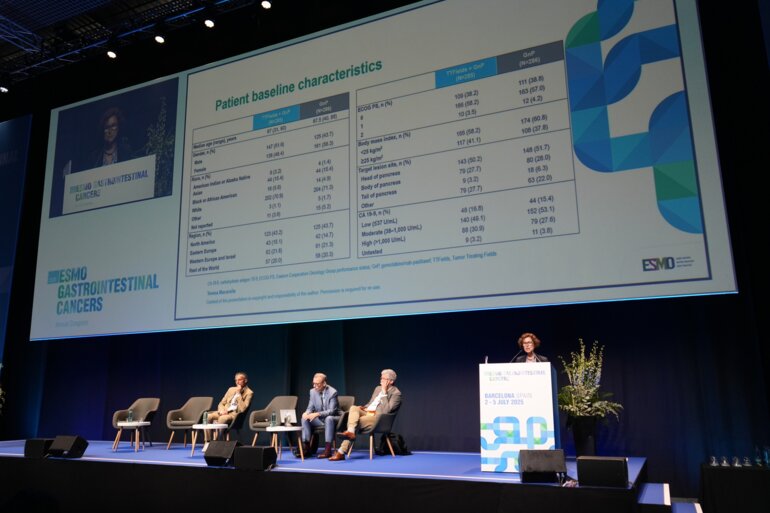
Findings support de-escalated radiotherapy after surgery in HPV-associated oropharyngeal squamous cell carcinoma
In a phase III trial, lower doses of adjuvant radiotherapy plus docetaxel were associated with reduced toxicity and need for percutaneous endoscopic gastrostomy, with an impact on quality of life

Immune interception represents an exciting opportunity to stop cancer in its tracks
Data from two studies suggest a good rationale for targeting T-cell dysfunction with precision immunotherapy to intercept pre-cancerous lesions

Epigenetic information could harbour biomarkers of diagnosis and prognosis
Presented studies explore different approaches to predict cancer cachexia and inform on the intra-tumour heterogeneity to personalise treatment

A toolkit to address disparities in digitally enabled oncology trials
An initiative fosters inclusive research by improving patient access and participation in cancer research

AI and remote monitoring are shaping a new patient journey in oncology
Real world experience suggests that the integration of digital tools into cancer care may close current gaps in patient outcomes reporting

Pan-cancer AI model shows to predict 30-day mortality in patients with advanced cancer
In a study, a machine learning approach outperformed cancer-specific models and revealed universal biomarkers to guide end-of-life care decisions

Data supports the use of an electric-based therapy combined to standard treatment in locally advanced pancreatic adenocarcinoma
Quality of life and pain management data adds to efficacy results of combining TTFields with gemcitabine and nab-paclitaxel as a potential new option of care

Machine learning approach identifies the enzyme MMP2 as a key target for drug repurposing in advanced cervical cancer
Additional treatment targets and potentially repurposable agents were identified based on chemoradiotherapy response, which could now be explored for further validation.

Patient-reported outcomes in dose-finding show value in oncology trial inclusion, but shared standards are needed
Findings from studies show that patient-centred evidence can inform decisions in early-phase cancer research

Can AI help deliver better medicines to patients?
Artificial intelligence has entered drug discovery and development supporting target identification and validation, but challenges remain
